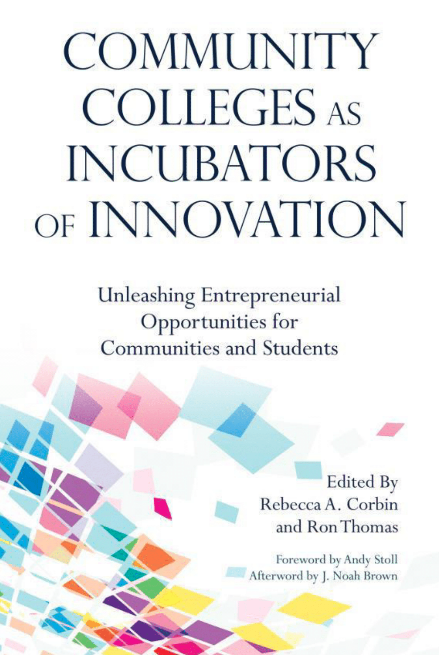Community Colleges as Drivers of Economic Development
If community colleges continue to invest in entrepreneurship training and incubation, the surrounding communities should see an increase in entrepreneurial activity, which should lead to economic growth and greater job creation (Badal, 2010). A couple of questions each community should be asking themselves: how can community colleges support students who have an interest in underrepresented occupations in their community? How can the community strategically identify economic development plans that bring new opportunities and diversify a community’s business environment? Entrepreneurship can be that catalyst. Particularly if community colleges provide entrepreneurial education.
Presently, communities do not seem to be diversifying their business environments. In fact, fewer firms are being created. A trend of consistent decline has been seen since 1977 (See Table 4.5).

Table 4. 5. Startup Density: 1977 to 2016
Source. Author’s analysis of 2017 Kauffman Index of Startup Activity, Ewing Marion Kauffman Foundation
Note. An establishment is a single physical location, whereas a firm represents either one establishment or a combination of establishments (Akbar, Talan, & Clayton, 2016).
In addition, an increasing number of new firms employ 250 people or more, suggesting that small to mid-sized businesses are not as prevalent as they once were. Compounding matters is that even when new businesses start, half of all establishments close within five years (Business Employment Dynamics, n.d.). Why? What do community colleges need to do to reverse this trend?
It is essential for community college leaders and champions to understand the local economy in which they are a critical player, and to specifically build programs and opportunities for business activity within their respective communities. While more Americans are becoming more educated, knowledge is becoming more specialized, and access to occupations remains unequally distributed. If we hope to ensure that all Americans have a chance at a living wage in a viable community, the answer has to come from the nexus of entrepreneurship education and localized workforce development, and the human capital for the development must be local community colleges.
Coupled with these trends has been the growing research, which ties many of the characteristics of student success at the workplace to the characteristics of entrepreneurial behavior. Students who can take advantage of situations, who learn to market themselves, and who are willing to take risks become both successful in school as well as in the workforce. According to research conducted by the World Economic Forum (2016), the top 10 skills most desired by employers by 2020 are a laundry list of entrepreneurial competencies. From complex problem solving to creativity, to emotional intelligence and negotiation, the skills employees need to succeed can be developed in entrepreneurial classrooms of community colleges across the nation. These institutions hold the promise of tomorrow in their ability to build curriculum and programming around the intersection of entrepreneurship and workforce development.
When community colleges provide this kind of education, their students emerge as helpful and relevant members of the workforce. When community colleges provide this education with a focus on local needs, their students are poised to boost local economies by diversifying local business.
To learn more, order NACCE’s new book, Community Colleges as Incubators of Innovation to read Christopher Mullin and Doan Winkel’s chapter on “Entrepreneurship and Workforce Development: Makings of a New Synthesis.”
To order, click here.

Christopher Mullin has served as the director of Strong Start to Finish, executive vice chancellor of the Florida College System, assistant vice chancellor for Policy and Research at the State University System of Florida, and the program director for Policy Analysis of the American Association of Community Colleges (AACC) in Washington, DC.
Follow Christopher on Twitter.
Doan Winkel is the John J. Kahl, Sr. Chair in Entrepreneurship and director of The Edward M. Muldoon Center for Entrepreneurship at John Carroll University. He is the founder and director of the Entrepreneurship Education Project, which gathers data from nearly 20,000 college students from 400+ universities across 70+ countries to better understand how to teach entrepreneurship.
Follow Doan on Twitter.
